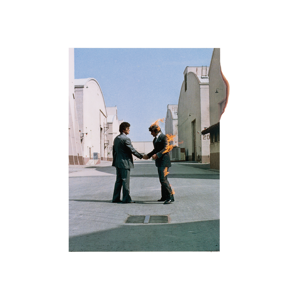 Bowie was certainly one of the first artists to embrace the Internet as a social tool as well as a promotional one. His next stunt was to have a contest wherein one of his subscribers would write lyrics for a song he’d then record for his next album. He made good on the offer, too.
Bowie was certainly one of the first artists to embrace the Internet as a social tool as well as a promotional one. His next stunt was to have a contest wherein one of his subscribers would write lyrics for a song he’d then record for his next album. He made good on the offer, too.‘hours…’ was hailed by some as a return to the Hunky Dory era, but don’t let that fool you. While the overall sound is more low-key and reflective, and his shaggy haircut was impressive for a guy his age, was he happy? For the most part he sounds pensive, a little melancholy, and the tempo isn’t anywhere as frenetic as his last two albums.
The immediate low-key sound of “Thursday’s Child” heralds the return of the Bowie croon, and if only there were less Holly Palmer cooing in the mix. While his take on the Thunderclap Newman song would probably be welcome, this particular song with the title “Something In The Air” isn’t, tethered to his wobbly vocal. Worse, it drags. “Survive”, the mildly grungy “If I’m Dreaming My Life” with its double-time shift, and “Seven” all mine the same depressed territory, though the latter track, for all its simplicity, has the melody that sticks.
Things pick up a bit in the second half, starting with “What’s Really Happening?”, written by the aforementioned contest winner. It does give the album the kick it needs, as furthered in “The Pretty Things Are Going To Hell”, a nod to an old Iggy Pop song. “New Angels Of Promise” and “The Dreamers” stay upbeat, but in between comes “Brilliant Adventure”, an instrumental cut from the same cloth as side two of “Heroes” and tracks like “Crystal Japan”.
‘hours…’ isn’t very exciting, but it’s not awful. But after three full decades in the business, it would have been nice if Bowie still wowed us. As it turns out, many of these songs were originally written for the soundtrack of a video game, which shows where his head was at. (Some of those versions appear on the bonus disc of the reissue, alongside demos, remixes and outtakes. Clearly, he was full of ideas, some but not all of them good.)
David Bowie ‘hours…’ (1999)—2½
2005 limited 2CD edition: same as 1999, plus 17 extra tracks






